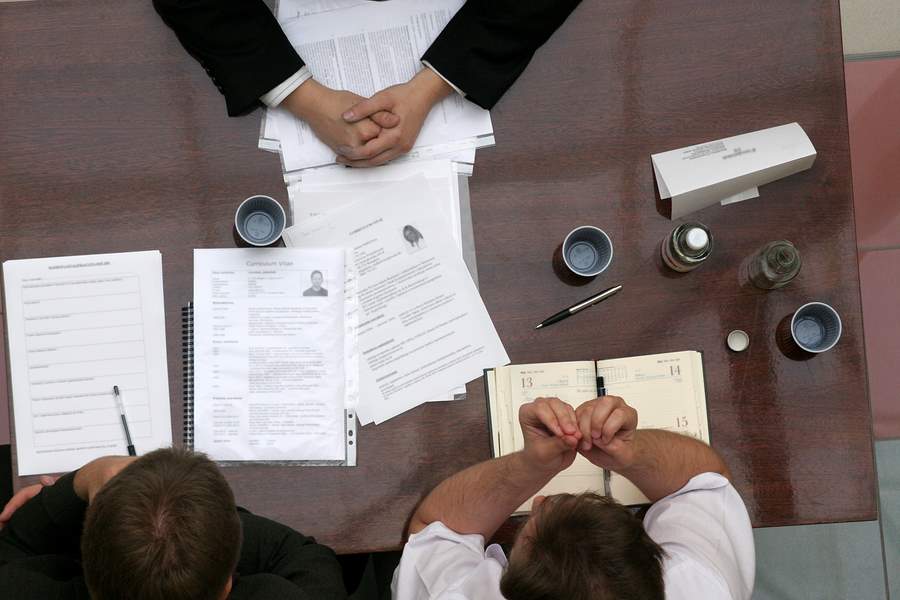This is probably your first time in a mediation. Here’s what you need to know…
Mediation is defined (legal definition) as the attempt to settle a legal dispute through active participation of a third party (mediator) who works to find points of agreement and make those in conflict agree on a fair result.
Two disputing parties, often the injured person and the insurance company, meet with an unbiased mediator to try and resolve the case in a way that makes everyone happy. Whether mediation is held before the lawsuit actually starts or after, this is a great way to find common ground and compromise for both parties.
Sometimes I find that clients find the process a bit intimidating. It is normal to be nervous before a meeting you have never been to or a scenario that could determine your financial future. Drawing from experience, clients are sometimes upset by overzealous defense attorneys who can come off a little brash.
But mediation should be viewed as a good thing by the plaintiff (you), since it’s often our initial opportunity to hear how the other side views your case and what there rebuttals would be if the case was to proceed to trial. A skilled trial attorney will warn their clients prior to mediation that they can anticipate the defense lawyer will address every last weakness or perceived issue with the case/claim in their opening statement.
Who will be at the mediation?
During a mediation, generally, everyone from both sides show up. This includes the plaintiff (injured party), the plaintiff’s attorney, the defense attorney (hired by the insurance company), and the adjuster for the insurance company. These individuals are known as the “interested parties” since they all have an interest in the outcome of the mediation and the case itself. The only disinterested party is the mediator, since they have no stake in the outcome. The mediator is usually an attorney that has many years of experience in dealing with the legal issues on either the plaintiff, defense, or even both sides throughout their respective legal career. They have basically heard it all. Thus, it is rare that a set of facts is unique to the mediator. Mediators come in all shapes and sizes. They range from being effective in moving a case towards resolution and actively working both sides in such effort to playing little role whatsoever. An effective mediator will have their calendar full for two months out and make a very good living in actively resolving legal disputes for others. From experience, an ineffective mediator always has a free schedule, and for good reason.

What happens at the mediation?
At the beginning of the mediation, the plaintiff attorney will make an opening statement. This will include the facts and arguments of the case, as well as, demonstrative aids, like videos, charts, power point presentations, etc. These visuals help to illustrate the injuries the victim has suffered and present evidence that would have been presented at trial. Both sides then go back and forth meeting with mediator, who then switches sides and conveys the information. The mediators job is to help both sides reach a compromise.
[See this article for more information about the specifics of what to expect at mediation.]
What is the benefit mediation vs moving right to trial?
Insurance companies need to know that a personal injury attorney is willing to take their case all the way to trial, if necessary. This threat of moving past mediation and right to setting the case for trial can play a huge role in whether or not the case get resolved fairly at mediation. Without the threat of a case advancing to trial looming over the insurance carrier, the insurance company will rarely offer to pay the realistic value (i.e, “mediation value”) of the claim. Basically, the potential for a full, court trial tells the insurance company that you are serious and are willing to fight for fair compensation.
If the adjuster is aware that the plaintiff lawyer has never tried a case all the way to verdict—or does not litigate their cases on a routine basis—they know they will get off cheap. I use the words “mediation value” to refer to the settlement because it’s truly a compromise by all interested parties to the case. With a successful mediation, both sides will depart feeling a bit slighted. The insurance adjuster will feel they paid too much and the plaintiff will often feel that they did not receive quite enough compensation. This is just the nature of the beast.
Resolving your case at mediation and getting a little bit less than you wanted is a small price to pay for not leaving the outcome of your case in the hands of the jury. Of course, if the facts of the case are extremely compelling and easy to understand, you and your attorney should have no qualms placing your trust in a jury, where the benefits could seriously outweighs the risk. In these types of cases, mediation is just a formality that courts require before setting your case for trial, since they are often required as a way to potentially relieved the court of matter-of-fact cases.
Contact Dolman Law Group Accident Injury Lawyers, PA
At Dolman Law Group Accident Injury Lawyers, PA, we have developed specific strategies to get you the best compensation at mediation. Of course, not all cases can be settled at mediation and not all cases should be, but when it’s the right call it can be a great way to get you the compensation you deserve. If you have been injured and are having trouble getting the money you need for your damages, call us today for a free case evaluation. We can be reached by calling 727-451-6900 or by contacting us on our website. We look forward to meeting with you.
Dolman Law Group Accident Injury Lawyers, PA
Clearwater, FL 33765
(727) 451-6900






